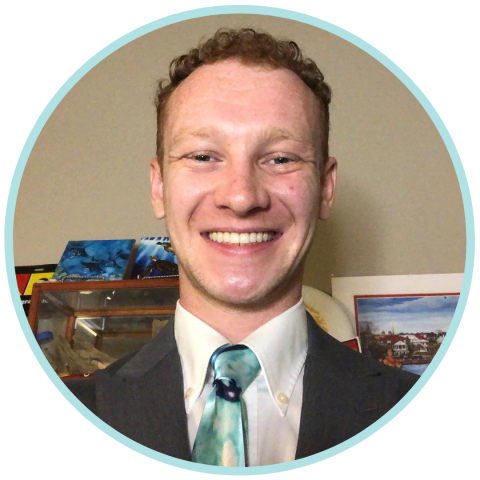More than half of all cancer drugs and antibiotics originate from a chemical compound discovered in a natural product, according to the National Cancer Institute. Nolan Barrett, an ARCS Atlanta Scholar, knows this. He is a PhD candidate at the Georgia Institute of Technology studying Ocean Science and Engineering. His focus is on marine natural products and chemical ecology. It’s a passion he wants to share with future scientists, but it goes beyond just chemistry. It’s also about conservation.
“Natural products chemistry is the study of mostly secondary metabolites, which are chemicals made by organisms that aren’t necessary for life in a normal function but confer some sort of evolutionary advantage to that organism,” explains Barrett. These same chemicals found in those organisms may be used as potential disease therapeutics. Barrett shares two examples: the top two chemo-therapeutic drugs are Paclitaxel, which comes from a compound from the Pacific Yew Trees, and Eribulin, derived from a marine sponge. It’s one of the reasons to advocate for conservation. Barrett argues, "Losing species to anthropogenic forces means losing potential disease treatments but also the ecosystem services those species provide."
“If you take that interest in their ecology and blow it up to a bigger scale, and combine it with the drug discovery aspect, you can convince people to conserve different environments; we now know the intellectual and financial value of the things that live there,” says Barrett.
Barrett expresses gratitude to ARCS for being a recipient of the Scholar Award, as it allowed him to travel to three conferences over the last two years, and he anticipates traveling to one more. Two conferences were the biggest and most inclusive for his field of study, the American Society of Pharmacognosy. The third conference was the Gordon Research Conference, the most prestigious for select fields. He had scientific and intellectual conversations with peers and researchers at these events. Barrett shares, “I am so proud of all the research my field is doing, and seeing that in real life in real-time at these conferences was second to none.”
Barrett believes ARCS provides “new opportunities for advancing early career researchers and their science, which benefits the world.” He’s experienced it in his research and his fellow ARCS Scholar Award recipients. “ARCS has given so many students that little bit extra, that little bit of edge that they needed to find their stability, to push their research to the next level, or to make that one component of their research project possible,” Barrett concludes.

